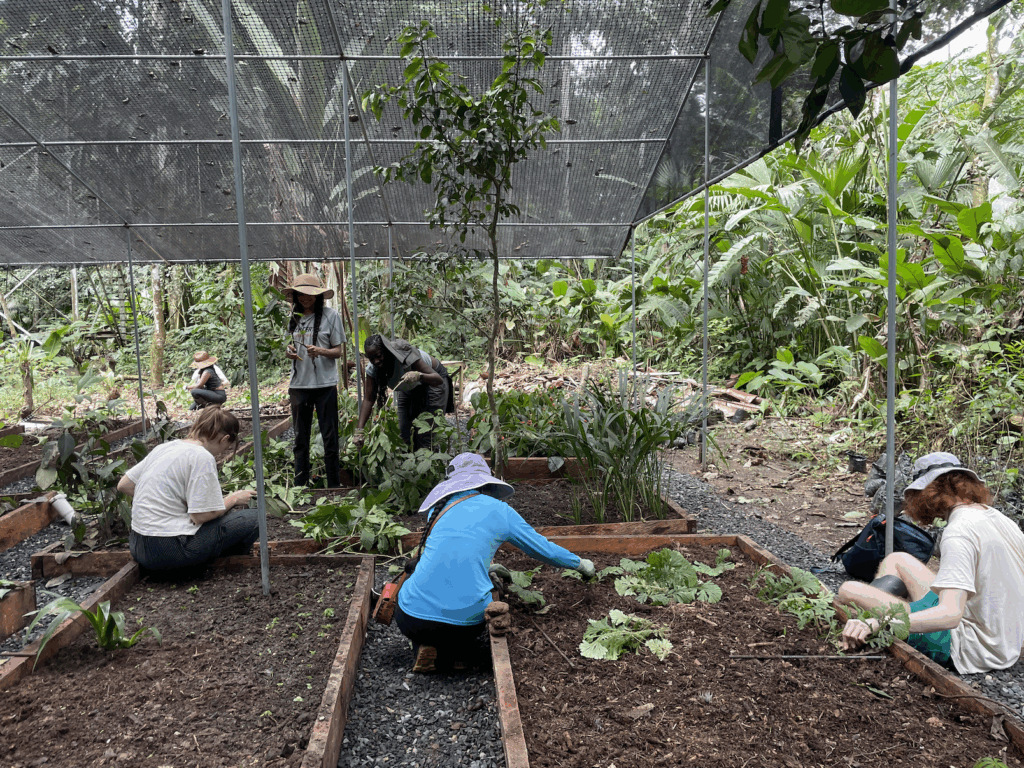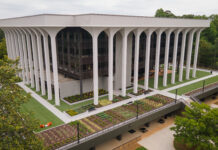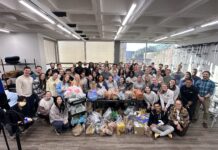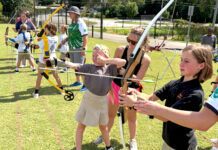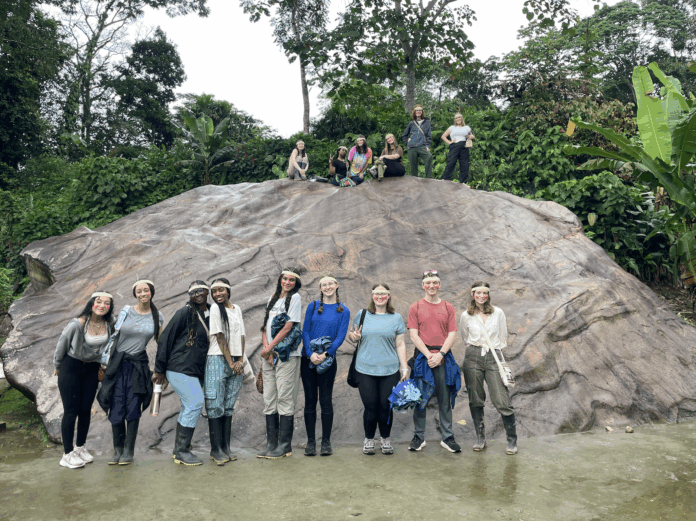
Mercer University students assisted an Indigenous community in preserving local plants and cultural and environmental knowledge related to them during a three-week trip to Ecuador in July. Dr. Lauren Dodaro, assistant professor of anthropology, and Dr. John White, adjunct professor of biology, took 15 undergraduate students to the Amazon rainforest for this new Mercer On Mission program.
“It’s somewhere I’ve always wanted to go,” said senior Anna Strupp, a psychology major and anthropology minor. “I knew this (trip) was the perfect opportunity to go with a professor I trusted to a place that was fascinating to me.”
The professors were introduced to the Amazonian Runa community, who live in the village of Venecia Derecha along the Napo River and speak Kichwa, more than a decade ago while studying at a research center there through the Foreign Language and Area Studies Fellowship. They’ve continued to visit and work with the community since then, and the community members have become a second family to them, Dr. Dodaro said.
This year, they wanted to bring a group of Mercer students to help advance the community’s ethnobotanical garden.
“This garden, it’s not just meant to preserve the plants, but also the knowledge, the uses, the stories that are local to the area about each plant,” Dr. Dodaro said. “That local environmental knowledge is what people rely on for their livelihoods, for their daily lives. Now, with globalization, some of that knowledge is being lost, so creating an ethnobotanical garden is meant to preserve it for future generations.”
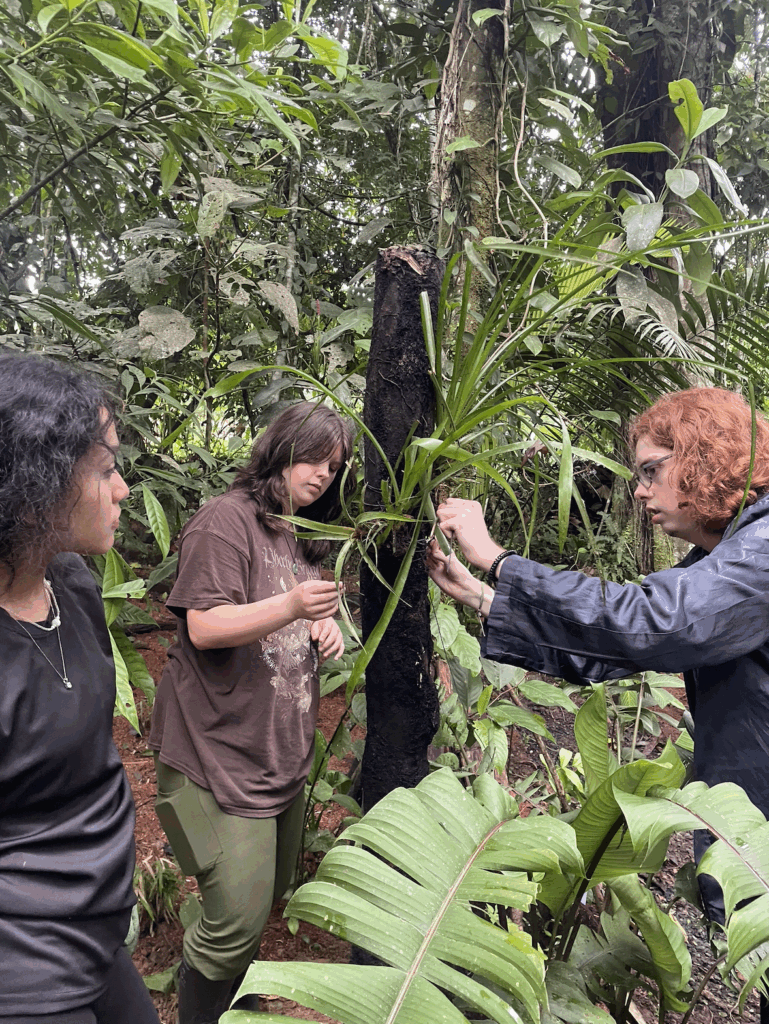
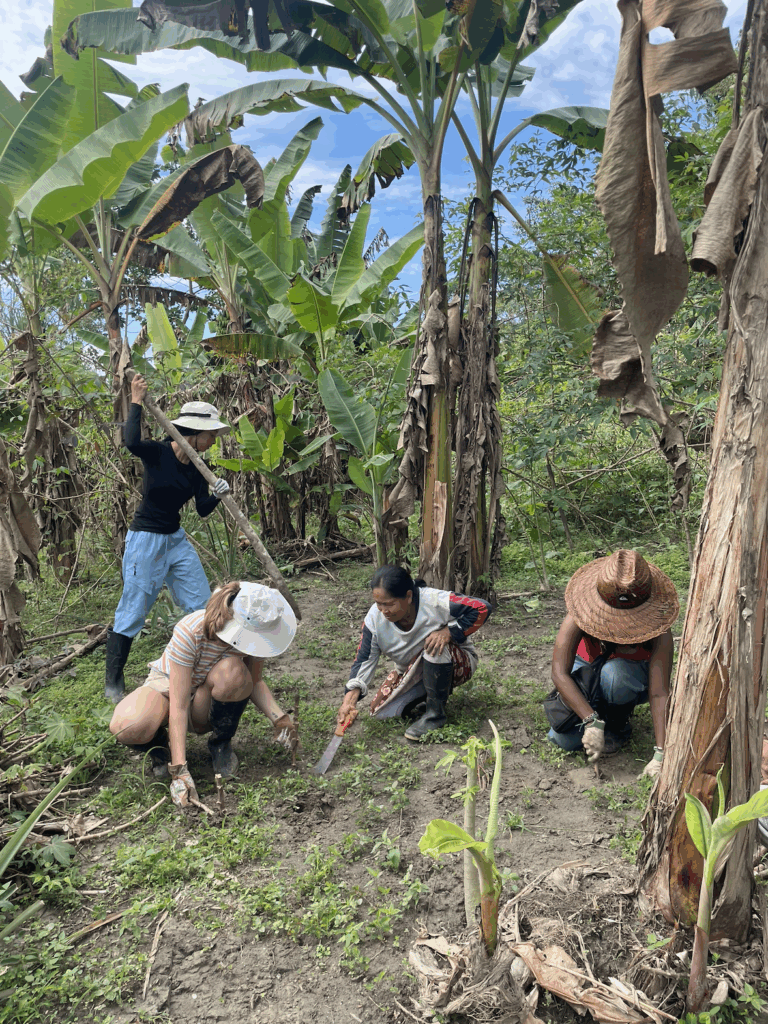
The Mercerians researched and documented local plants, collected and replanted them in the garden, offered assessments on the garden and its future, and compiled information for garden signage and an ethnobotanical website. They focused on about a dozen plants but worked with a couple dozen in total, learning how the plants are used in everyday life for food, medicine and other purposes.
“In the beginning, it was a lot of figuring stuff out,” Dr. Dodaro said. “But by the second week, I could see the light bulbs turning on as the students were able to look at all of these seemingly different things we were doing and realize how it was all connected and all part of the bigger picture.”
The Mercer team also traveled eight hours by boat to reach an isolated Waorani village, where they stayed for a few days to gain a different cultural perspective and see a greater diversity of plant life. Strupp and sophomore Florence Nduna both said playing soccer with the Waorani youth was one of the most impactful moments for them. Strupp said it showed how people can connect despite language barriers.
“It was this one unifying activity that we were able to do that really built rapport,” said Nduna, a biology and art double-major and global health studies minor. “It was interesting to do something that we all enjoyed even though we all came from different parts of the world. This community lives in voluntary isolation. We didn’t really know what to expect. It was a great time, and I learned so much.”
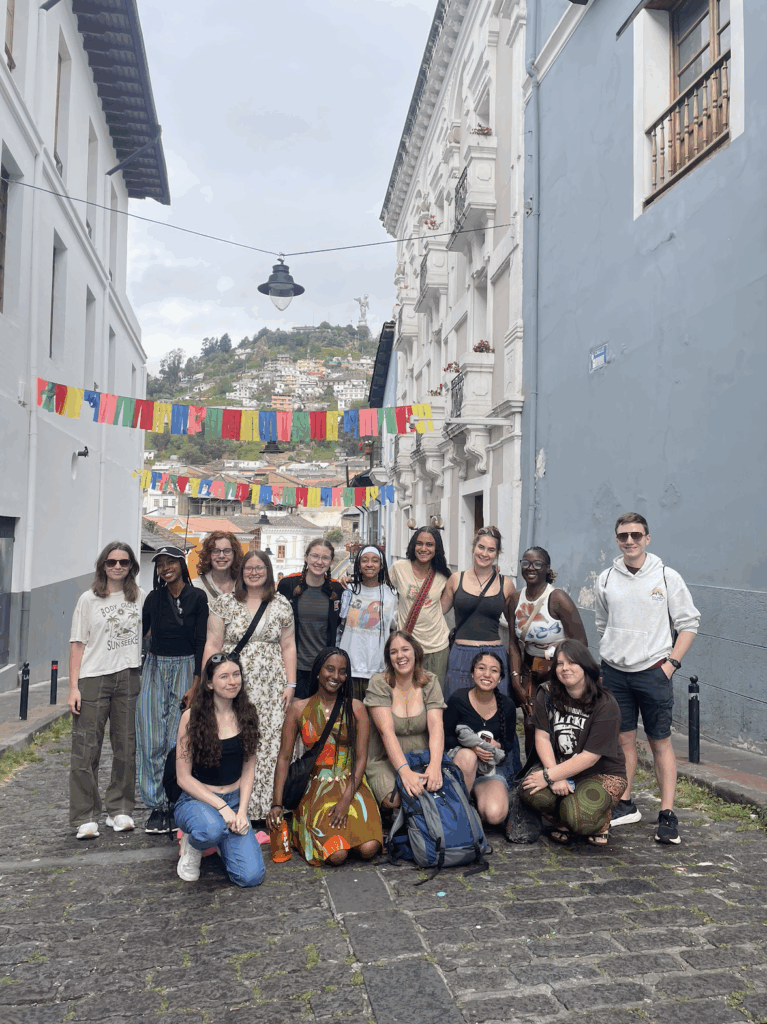
The Mercerians stayed in rustic dorms near the Runa research station and immersed themselves in the community through activities like taking the bus to the market and participating in traditional dancing.
“These students just embraced it,” Dr. Dodaro said. “I think that this really opened the world for a lot of the students. Going into this, we prepared them as well as we could, but they were still very much learning on the go, and that is much more accurate to what the real world is. I got to see them within a few weeks really grow so much as people. I think the fact that they really all approached it with enthusiasm and curiosity is what allowed each of them to get so much out of it. They were just very open-minded.”
Strupp received approval prior to the trip to conduct interviews for her independent research, which revolves around how children talk to each other and understand each other emotionally. She interviewed five local children and a lifelong resident about empathy, which she said was a unique and beneficial experience.
Nduna said she was drawn to this Mercer On Mission program because it combined her interests in biology and conservation. The goal of the artwork she creates is often to create awareness for conversation, and she enjoyed being able to make clay bowls using natural materials at one point during the trip.
“I think one of the major things I learned is it’s easier than we think to have lives that are better integrated into the well-being of nature,” Nduna said. “Having a garden that’s able to support biodiversity and medicinal needs really stood out to me. The Indigenous community in the Amazon, they had so many ways they had integrated plants into their daily routine.”
In addition to their garden work, the Mercer team learned about plant medicine from local midwives; spent a day in the historic district of capital city Quito; experienced the hot springs in Baños, where the Andes Mountains and the Amazon rainforest meet; went river tubing; and learned to make chocolate while visiting ancient petroglyphs.
“I’m really grateful to my professors for making sure we were all comfortable,” Strupp said. “The trip was just filled with so many experiences. That just meant a lot for me, that they were looking out for my comfort but also making sure my experience was impactful.”
